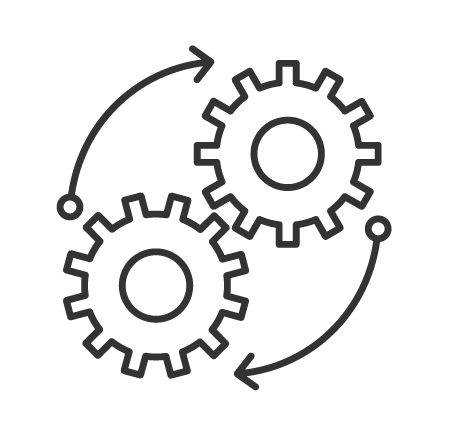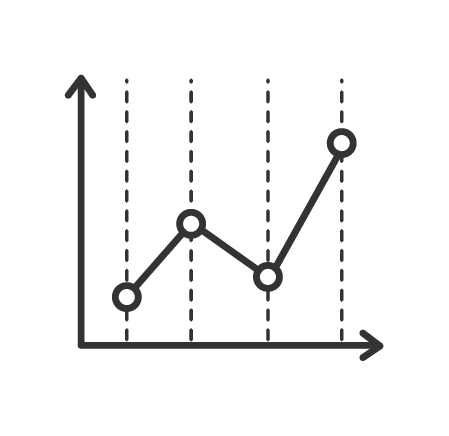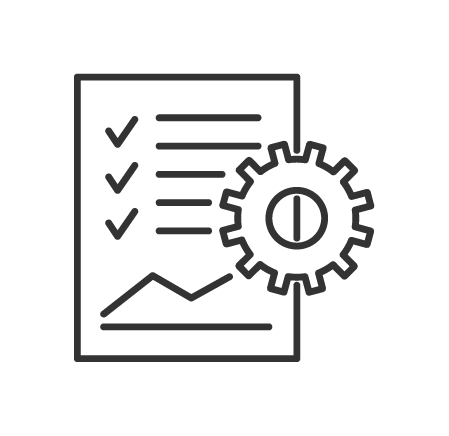Delmia Ortems - Advanced Planning and Scheduling APS Software
With APS Software DELMIA Ortems using production scheduling software, you can quickly develop detailed production schedules and short, medium, and long-term production plans. This system synchronizes and optimizes production processes across multiple lines preventing you from missing deadlines. Managing lead times allows you to respond quickly to disruptions or issues and minimize machine downtimes, strengthening relationships with existing customers while making it easier to gain new ones.
Our manufacturing planning software makes production scheduling accurate and hassle-free. With it, you will effectively manage your inventory and shorten the time it takes to develop a master production schedule in half. Production planning has never been this easy!
Our material requirement planning software MRP software for synchronized requirements planning facilitates automation of orders for semi-products and creation of dynamic connections between them. This MRP system significantly improves the development of detailed production schedules and increases control of the realization of assigned production tasks, all while automatically adjusting material production planning if stoppages or delays occur.
Increase your production efficiency with APS Advanced Planning and Scheduling Software
Effective planning lowers costs and increases production efficiency. Your business will have the ability to produce more than ever before. You will realize complex projects that require maximum precision in planning the duration of technological processes. Using the same resources, you will unleash the higher production potential of your shop floor.

Planning and improving
production efficiency

Optimizing raw materials
inventory, components,
and projected inventory requirements

Ability to view data and manage
daily demand, available
production capacity, and stock
material at any BOM level

Ability to manage the production
process with regard to product
complexity and market dynamics

Multi-line optimization
and scheduling synchronization,
taking into account
production process constraints

Decision support analysis
and what-if simulations
Ready to get started?
Contact us and we’ll get in touch.
How can DELMIA Ortems's APS system help your enterprise?
Manufacturing Planner
Enables you to run load analysis and identify production bottlenecks to assess production capacity for medium- and long-term planning.
Production Scheduler
Takes into account machine, operator, and tool constraints to optimize the production plan, sequence of operations, and raw material inventory, allowing you to increase productivity and reduce changeover times.
Synchronized Requirements Planner
Synchronizes demand and production capacity for raw materials and just-in-time products across multi-level bills of material (BOMs).
What results can you expect?
shorter production cycles
lower stock level
higher production efficiency
shorter retooling time
shorter production plan development time
order planning and monitoring
higher customer service metrics
Production efficiency optimization
and integration with external data sources
Visual Interface Configurator (VIC) allows DELMIA Ortems APS Software to integrate with external data sources such as files, databases, or other information systems. The tool enables easy integration with other systems without writing a single line of code.
Interfacing with ERP and MES systems, among others, is done using this module. In addition, the DELMIA Ortems APS System has a dedicated and certified adapter for integration with SAP.
Frequently asked questions
Yes, you can use the Visual Interface Configurator module to integrate DELMIA Ortems with any ERP system.
Yes, the DELMIA Ortems interface enables you to make updates and adjustments to the timeline of orders and production operations, as well as set units of time, e.g., minutes, days, weeks, or months. The system allows for full customization of order information: order details, descriptions, numbers, and other info can be easily changed.
Yes, the system provides the reporting capability that allows for exporting reports in such formats as PDF. The second reporting method involves exporting reports directly from the system’s database into Excel spreadsheets or other data analysis tools.
No, DELMIA Ortems is an APS system that facilitates the creation of automated, optimal, and realistic production plans. Production reporting happens through MES and ERP systems that send information of completed operations and orders to APS.
Information about a production completion is typically sent from an MES system (or another production monitoring tool) to ERP, and then to an APS system.
An advanced planning and scheduling (APS) system extends capabilities of an ERP system and allows for preforming complex planning operations and optimized simulations, facilitating a streamlined process of developing production schedules for multiple products, leveraging diverse processes used across the company while taking into account limited production resources.
A customer service level (CSL) is a measure of customer satisfaction due meeting customer needs and expectations of product quality, delivery time, reliability, and convenience.
Demand planning is a complex and multilayered process that helps estimate the market demand and sales operations to organize production processes and create budget plans allowing for meeting customer demand, all while minimizing overstock and supply chain disruptions.
Electronic work instructions (EWI) are tools such as videos, images, 3D modeling and simulation software that provide working instructions and task guidelines for shop-floor operators.
An enterprise resource planning (ERP) system allows for management of a company’s resources such as staff, stock, and finances to optimize the use of these resources as well as the operations and processes taking place across the enterprise.
Production forecasting is the process of estimating the production size (including demand, sales, and the need of resources or new products) based on research and analysis of the available relevant data.
Product genealogy is a manufacturing execution system’s (MES) capability that enables monitoring of production lots by tracking finished goods from raw materials to completed products, from suppliers to end users. Monitoring production processes and tracking product genealogy are currently among the standard elements of production control, ensuring customer safety.
Lean manufacturing is an approach to manufacturing operations management based on the principle of minimizing the use of all resources, including time, while delivering goods and services of the highest quality at the lowest possible production cost.
Labor is the human effort that contributes to manufacturing operations and production processes.
A manufacturing execution system (MES) is a system used in manufacturing operations for tracking and documenting turning raw materials into finished products, enabling an effective, real-time data collection and control of multiple elements of the production process, including stock, personnel, machinery, and support services.
Manufacturing operations management (MOM) encompasses standard MES functionalities, e.g., managing staff, resources, and stock, while allowing for management of the whole enterprise, i.e., control of warehouses, shipments, material quality and maintenance.
Product lifecycle management (PLM) is the process of managing the whole product lifecycle from ideation, through research and development, service, all the way to disposal. Typically, the process allows for keeping the latest documentation with all its previous changes.
A visual interface configurator (VIC) is a solution that enables DELMIA Ortems to integrate with external data sources like files, databases, and other computer systems. The tool’s proven-to-work technology facilitates an easy communication with external systems with no need for coding or programming. The VIC module enables connections with other systems like ERP and MES.

Thousands of companies from various manufacturing industries are already using the APS Production Scheduler. Reach out if you’re interested in learning more about this tool and the benefits it can bring to your company.
Ewa Prokulewicz
Business Development Manager
- eprokulewicz@andea.com
- +48 536 590 357
